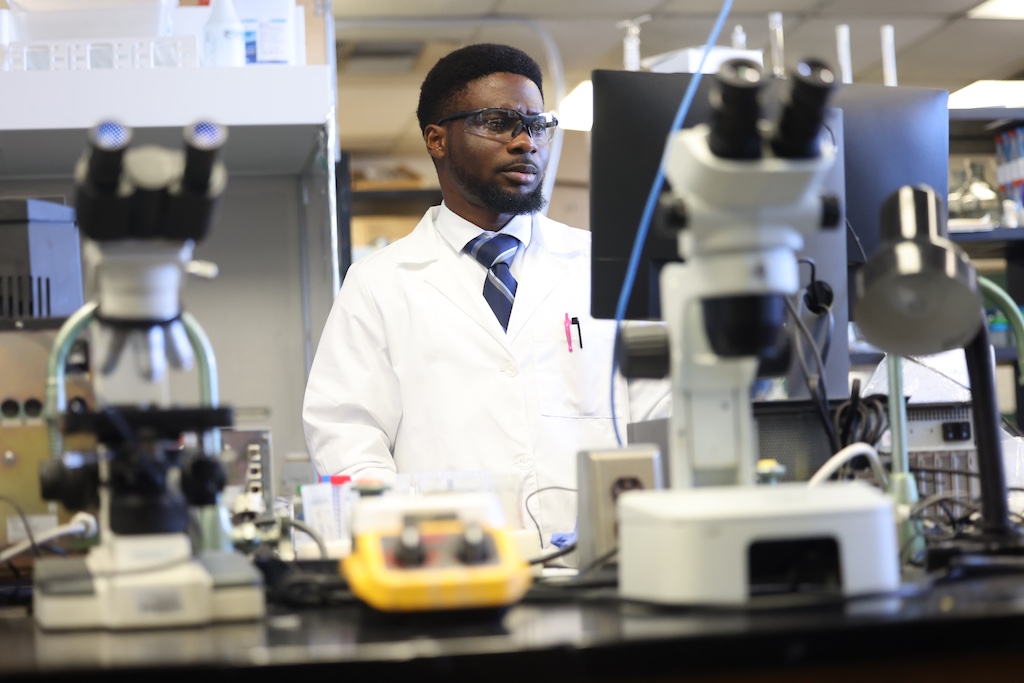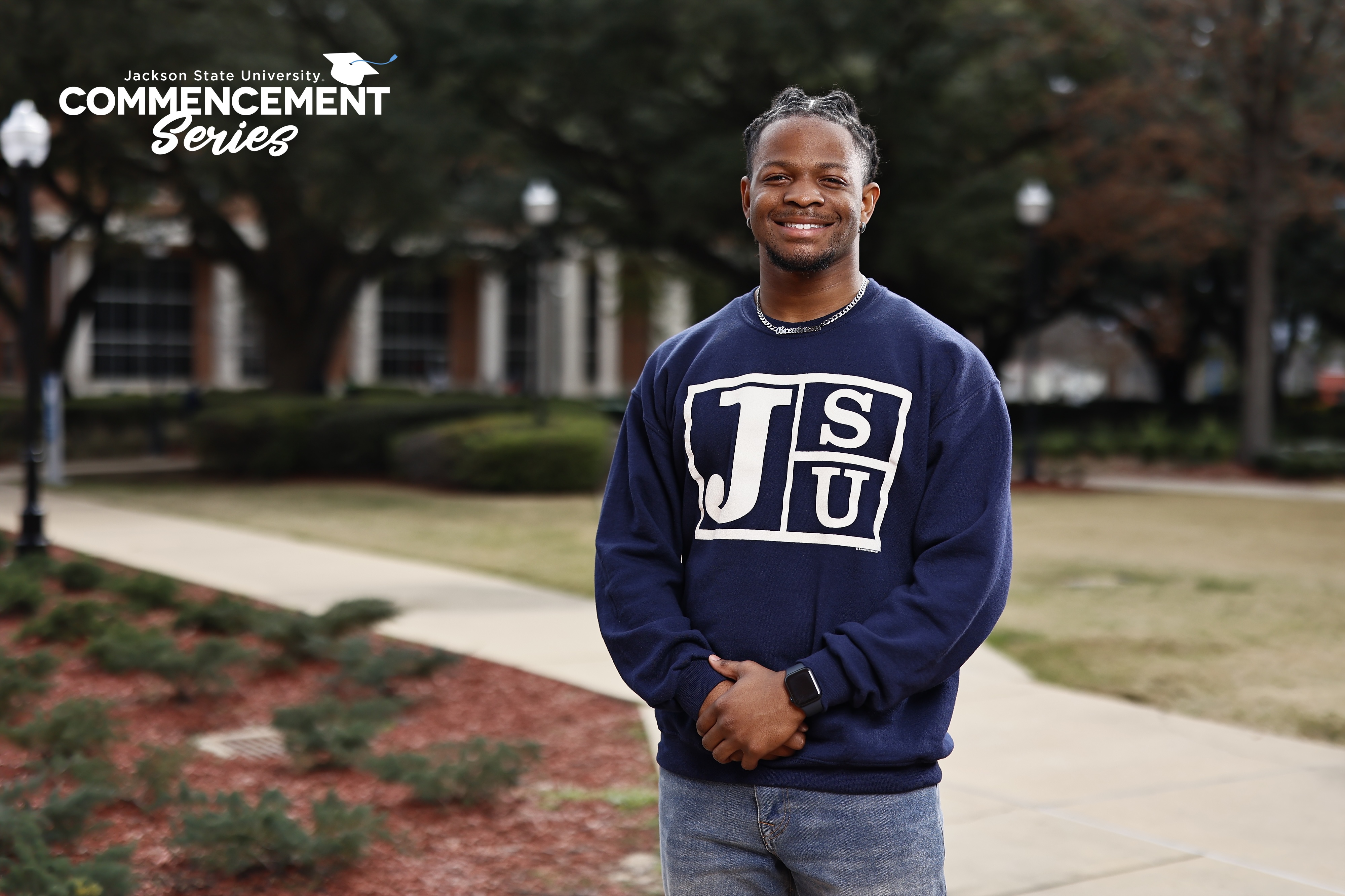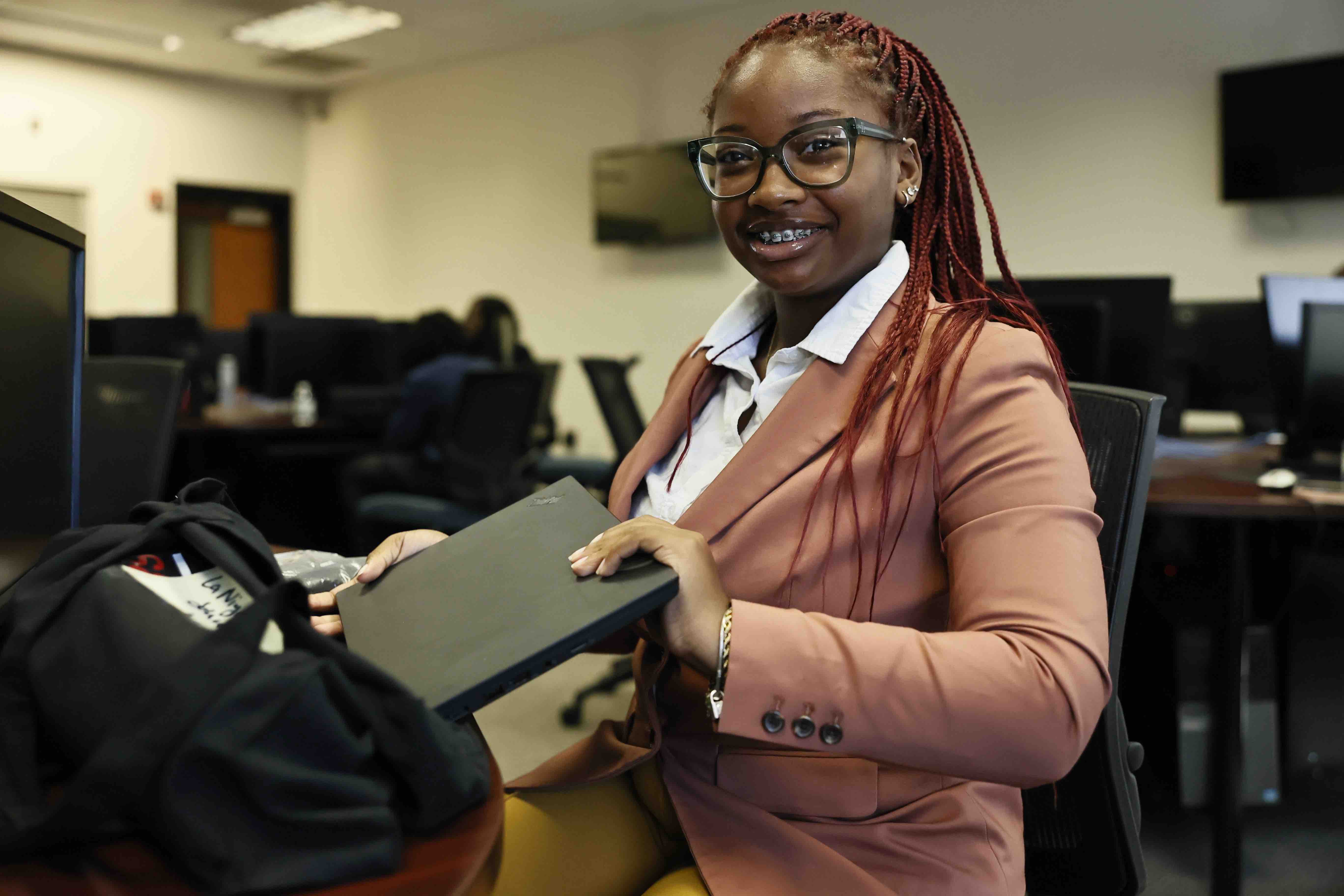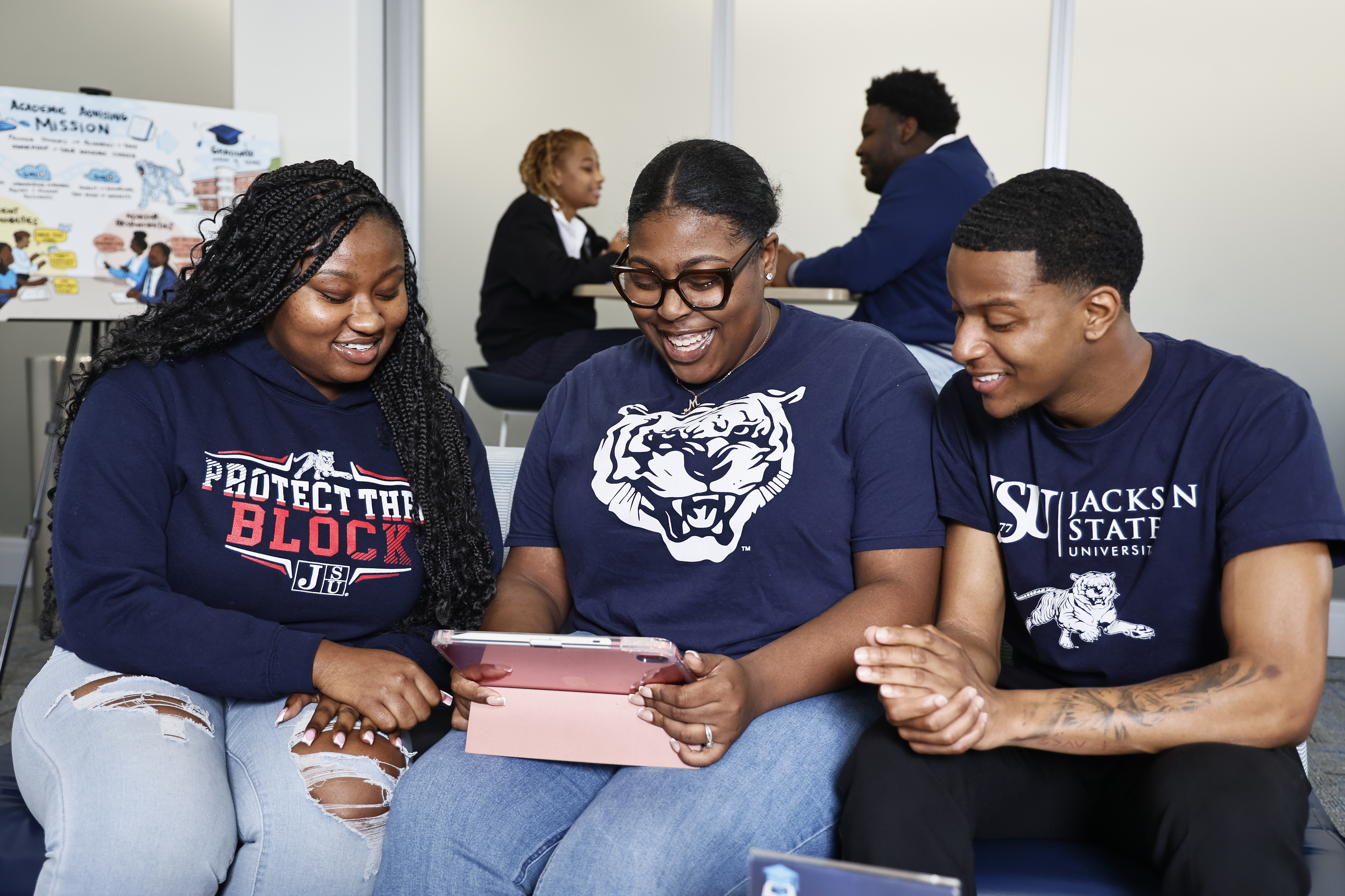By LA Warren
(JACKSON, Miss.) – Jackson State University (JSU) doctoral student Oketola Oluwaseun, from the Department of Chemistry, Physics and Atmospheric Sciences, has been awarded the prestigious Roy G. Post Foundation Award for his outstanding research, leadership and community impact in nuclear waste management and environmental sustainability. The international recognition comes with a $7,000 cash prize.
Oluwaseun’s research focuses on developing innovative materials to clean up nuclear waste using chalcogels. Chalcogenide-based aerogels are a distinctive class of porous nano-aggregated semiconducting materials with promising applications in clean energy and environment remediation. These materials trap and efficiently remove harmful radioactive elements in wastewater and nuclear waste that can cause severe effects on humans, animals and the environment.
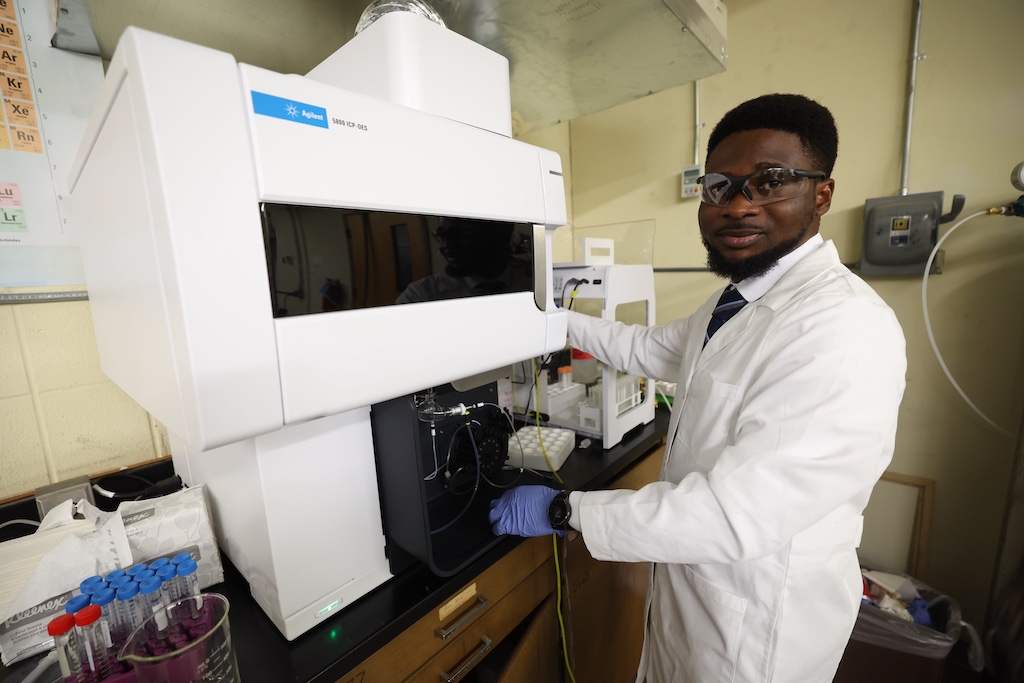
A rise in global energy demand and nuclear waste disposal challenges inspired Oluwaseun’s work, which also explores the broad application of these materials for next-generation batteries for electric vehicles (EVs) and other uses.
The Roy G. Post Foundation Award, presented by the Waste Management Symposium – one of the world’s largest global conferences on nuclear waste – recognizes “next-generation workforce students” making significant contributions to the field. In addition to receiving a cash prize, Oluwaseun was awarded an all-expenses-paid trip to present his research at the annual conference in Arizona last month.
“This award validates my dedication to nuclear waste management and environmental sustainability, reinforcing my passion for developing innovative materials to address real-world challenges,” said Oluwaseun, a 29-year-old native of Ijebu North, Ogun State, Nigeria.
“Professionally, this recognition enhances my credibility and visibility in the field, opening doors for collaborations, research funding and career opportunities in nuclear waste management and materials chemistry both in the U.S. and globally.”
Oluwaseun began his academic journey at Olabisi Onabanjo University in Ogun State, earning a Bachelor of Science degree that fueled his commitment to nuclear waste management and sustainable energy.
A decade ago, he witnessed firsthand the devastating effects of water pollution in his home state. During his internships as a quality control chemist at Ogun State Water Corporation, his team detected dangerously high levels of heavy metal. He saw how poor sanitation and untreated wastewater contamination led to severe health issues.
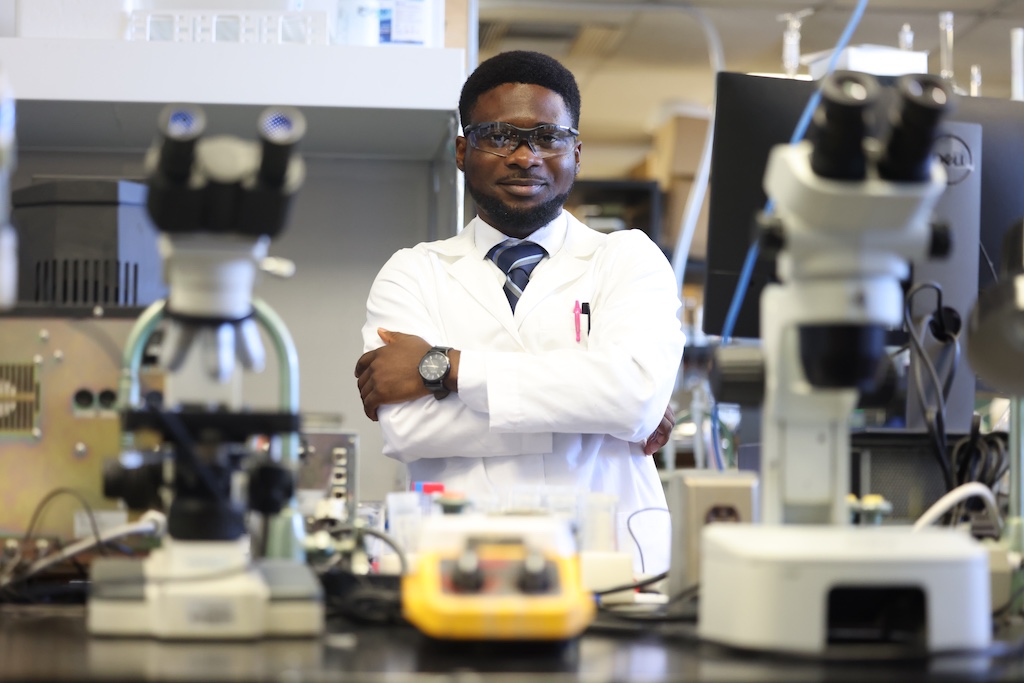
“This experience sparked my interest in developing advanced materials for wastewater treatment,” he explained. “In 2018, I collaborated on research evaluating heavy metals and radionuclides in selected rivers around Sagamu, Ogun State. This realization led me to pursue graduate studies at JSU, where I could explore the intersection of materials science and environmental chemistry to tackle environmental contamination through scientific innovation.”
Now a Ph.D. student in the College of Science, Engineering and Technology (CSET), Oluwaseun designs crystalline and amorphous inorganic materials using advanced techniques to study their synthesis, morphology and structure.
His work aims to develop eco-friendly materials for electrochemical applications, including removing hazardous radionuclides such as technetium from wastewater and enhancing lithium/sodium-ion batteries for EVs, for example. He also co-authored studies on chalcogels, which serve as high-capacity electrodes for conversion-based Li-ion batteries to improve performance, energy storage and renewable energy integration.
Beyond research, Oluwaseun is dedicated to mentorship and teaching. While studying in Nigeria, he won the Best Tutor Award in chemistry and the Leadership Award. In the U.S., he participates in STEM outreach programs, inspiring young students to explore environmental science and pursue careers in research.
For aspiring researchers in nuclear waste management and environmental sciences, Oluwaseun offers this advice: “Seek mentorship from experienced researchers, communicate your scientific findings effectively, and take advantage of opportunities such as conferences and networking events to build a strong professional network.”
Oluwaseun credits JSU and his advisor, Dr. Saiful M. Islam, an assistant professor in CSET, for their roles in his success.
“Dr. Islam’s guidance has been invaluable in refining my research approach and expanding my technical expertise. The resources and collaborative opportunities at JSU have significantly contributed to my growth as a scientist.”
Looking ahead, Oluwaseun aims to expand his research on chalcogel-based materials, exploring their applications in nuclear waste treatment, energy storage and environmental sustainability. He envisions collaborating with national laboratories, government agencies and industry partners to enhance nuclear safety and environmental protection worldwide.



